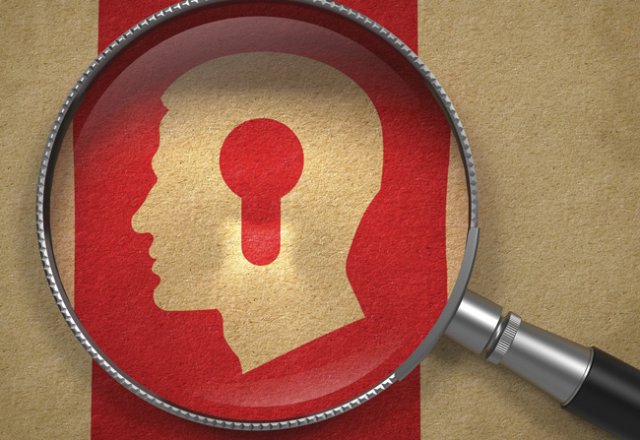
Are you already hypnotised?

Many of us are 'programmed’ by false ideas, says hypnotherapist Cynthia Morgan
Have you ever wondered why we believe certain things? And why some of those beliefs seem to keep us at arms length of living the life we really want?
Hypnotherapist Cynthia Morgan solves the mystery in her new book You’re Already Hypnotized: A Guide to Waking Up. Shannon Dunn finds out more…
Why You’re Already Hypnotized: A Guide to Waking Up?
The title of the book came from what I say to new clients during their first session. Often they’re apprehensive about being hypnotised by me, so I explain that they are already hypnotised or ‘programmed’ by false ideas. By that I mean their mind is filled with negative, unhelpful, and untrue thoughts. I’m just helping them to release the beliefs that are standing in the way of their true self. When I say to them, “I am really a de-hypnotherapist, because you’re already hypnotised,” people seem to relax and get it. It’s sort of an a-ha moment for them.
How is it possible that we can be hypnotised and not know it?
A definition of hypnosis could be: believing something is real even when it’s not. Our minds are filled with beliefs and interpretations of our past that we think are real, but in reality are often not. Thoughts like: ‘I am unlovable.’ ‘I am unworthy.’ ‘I will always be fat.’ ‘Sex is scary.’ ‘The world is unsafe.’ We walk around with these thoughts on repeat in our subconscious mind, and we respond to life robotically based on these thoughts. Our ego, authority figures, our past, and our culture, all contribute to ‘programming’ our minds with false ideas. A Course in Miracles tells us, ‘Beliefs are real to the believer.’ These beliefs are not necessarily the truth – it’s not true that you are unlovable or unworthy or that you will always be fat – but we believe they are true. And then they become our truth. That truth determines our experience. We can see the obvious example in terrorists or in Nazi Germany: they believe they are doing the right thing by murdering certain others, but clearly they’ve been ‘programmed’ into wrong-minded thinking. You could not tell them they were hypnotised though, because they wouldn’t believe you. Likewise, we firmly hold to ideas that aren’t even true.
Can we stop ourselves from being hypnotised during everyday life?
Not before the ages of nine through 11. Before that we are an open subconscious mind, fully ripe for programming. That’s why you can tell a child about the tooth fairy and he or she will believe you. Nothing is getting filtered because children have not yet developed the critical factor, which acts like a gatekeeper between the conscious and the subconscious mind. The critical factor filters the information from the conscious mind into the subconscious mind. At some point, the child will no longer believe in the tooth fairy because it won’t make sense to their conscious mind. But just because we’ve developed a critical factor does not mean we don’t still get programmed; we do, mostly by authority figures such as parents, coaches, doctors, therapists, politicians and the news. Those we consider experts.
The best way to stop yourself from being hypnotised is to question everything. Do your own research and ask for guidance from your higher self. Really, it’s about waking up. To wake up is to heal. It takes great practice and discipline, and it requires diligence and quiet time, such as meditation, to distinguish between, as the course says, ‘real’ and ‘unreal’ thoughts. We are all hypnotised on some level, but some are more awake than others. Daily spiritual practice and self-hypnosis shield you from potential ego thinking and being hypnotised by the world through reconnecting you back to your truth. When we forget who we are, we are easily hypnotisable by others and society.
What daily action steps could we take?
A good place to start de-hypnotising is by recognising that there is unlimited potential within – that you are a powerful, creative, spiritual being, and you are not defined by your past, your present, your bank account, your age, nor are you a victim – unless you choose to be. You are the creator of your experience. As mentioned, daily meditation, self-hypnosis exercises and affirmations are useful actions to facilitate healing, which is why I included all of them in the workbook section of the book.
When did you discover the greater population is already hypnotised?
It came during my training as a hypnotherapist. Most hypnotherapists, I would think, understand the idea that our job is really that of de-hypnotising. It wasn’t until I was exposed to hypnotherapy that I truly understood it in those terms. One of my instructors said something to the effect in a class, and it hit me like a lightening bolt that we are all already hypnotised.
What can readers learn from experiencing your book?
In school, we are taught in detail about how our body works, but no one teaches us how our mind works, unless you study psychology in college. And even that is limited. So my first hope is that readers walk away with a better understanding of their mind. And through that knowledge, I hope they learn just how much control they can have over their mind and thus their emotions, their experience, and their future. Lastly, I hope they are inspired to begin doing the exercises in the book to start their journey of waking up.
For those who haven’t heard of A Course in Miracles, can you speak about your experience of it?
I consider myself a seeker. I began transcendental meditation at seven years old and spent my life reading spiritual or New Age books and attending lectures and workshops of some of our greatest leaders in the field. But there was always something missing in everything I sought. Nothing and no one could, to my satisfaction, answer all the questions I had – until I found A Course in Miracles. It all just sort of clicked into place. It was what I was seeking, and I was 19 at the time. Since then, A Course in Miracles has informed my life. It has shaped my thinking. As mentioned, it’s the lens in which I see the world. It is what guided me to becoming a hypnotherapist, to meeting my husband, who was also a student of A Course in Miracles, and it inspires my work as an animal activist, as well. As cheesy as it sounds, ACIM is the air in which I breathe. I understand my life better, I understand the motivation of myself and others, I understand why we are all here, and what we are trying to achieve. With that understanding, I have become more at peace and fulfilled.
What happens when someone becomes de-hypnotised?
They can expect to become lighter, happier, healthier, more abundant, create their ideal body, release bad habits, meet their soul mate, become more engaged in helping the world, have a desire to be of service, wake up in the morning with a deep sense of purpose, find true empathy and connection to everyone and everything, and be surrounded by an ever present peace that goes with them wherever they go. Just to name a few. NH
Find out more about Cynthia Morgan and her book at cynthiamorgan.us


